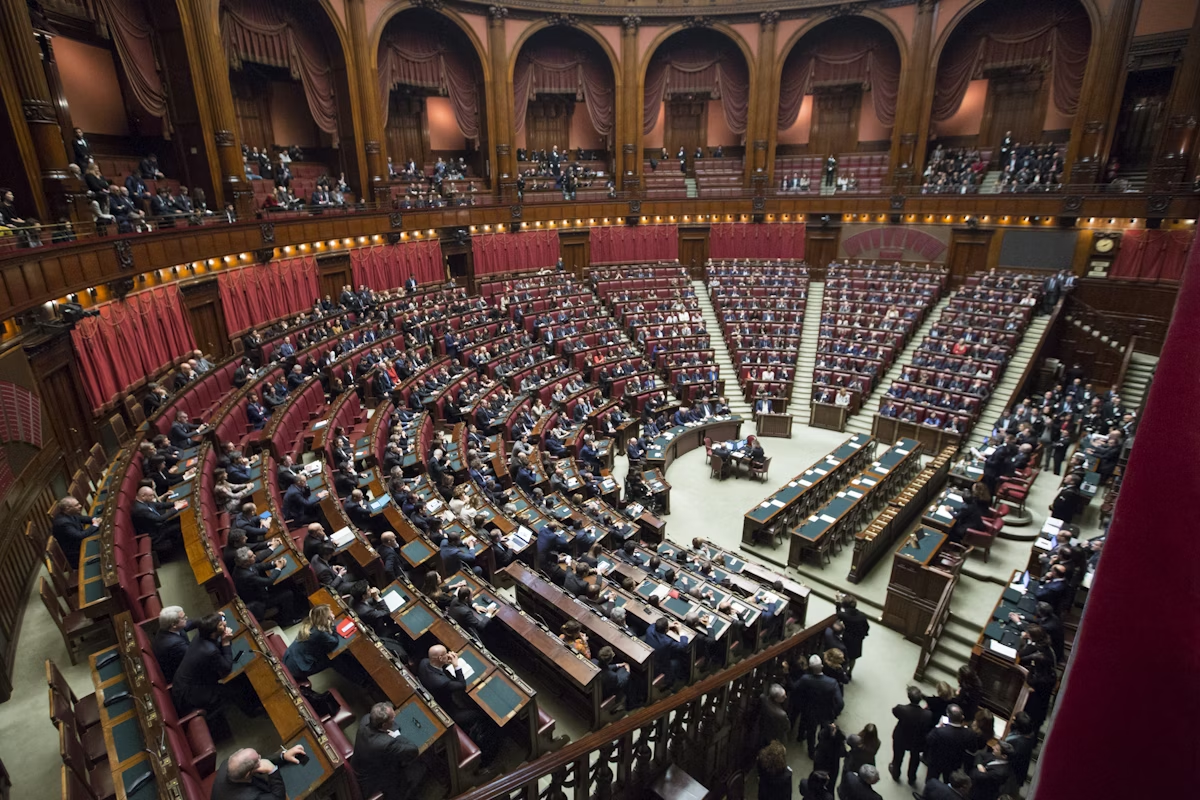Overview of the 2025 Global Election Supercycle
In 2025, 76 nations—representing 65% of the world’s population and 82% of its GDP—will hold national elections, marking an unprecedented global democratic exercise. Decisions about governance are more important than ever during this “supercycle” of elections, which is taking place in the midst of growing geopolitical tensions, economic uncertainty, and technological disruption. In many countries, voter turnout has hit all-time highs as people realise how important these choices will be for their future.
This extensive analysis, which is over 2,500 words long, examines:
- Key Election Outcomes (Unexpected, US, India, and EU)
- Policy Transformation (economic reforms, social policies, and climate action)
- Innovation in Governance (anti-corruption measures, digital democracy)
- Political Realignments (changes in voter behaviour, evolution of party systems)
- Trends in Global Governance (harmonisation of regulations, multilateral cooperation)
1. Significant Election Outcomes: Changing the World Environment
A. United States: The Effects of the 2024 Election on Governance
| Race | Outcome | 2025 Governance Impact |
|---|---|---|
| Presidential | Incumbent re-election with slim margin | Divided government continues, executive actions dominate |
| Senate | Narrow majority shift | Judicial confirmations accelerated, treaty ratifications stalled |
| House | Marginal majority retention | Budget battles intensify, oversight investigations multiply |
| State Governors | Split results across battleground states | Policy experimentation at state level increases |
B. National Elections and the European Parliament
The European Union
- The liberal/green coalition keeps the majority, but by smaller margins.
- National policies are being influenced by far-right gains in France, Germany, and Italy.
- Negotiations for EU expansion with Ukraine and the Western Balkans continue.
Changes at the National Level:
- Germany: Despite financial limitations, the coalition government increases climate investment.
- France: The push for digital sovereignty and pension reform is made possible by the presidential majority
- Poland: A unified pro-EU government speeds up judicial reforms
2. Policy Transformation: Significant Changes in Governance by 2025
A. The Revolution in Energy and Climate Policy
| Policy Area | Leading Nations | Key Measures |
|---|---|---|
| Carbon Pricing | EU, Canada, Japan | $75-150/ton carbon tax with border adjustments |
| Renewable Transition | Germany, USA, China | 70% clean electricity targets by 2030 |
| Climate Adaptation | Netherlands, Bangladesh | Major infrastructure investment in resilience |
| Green Industrial Policy | USA, India, South Korea | Domestic manufacturing incentives for clean tech |
B. Innovations in Economic and Social Policy
Regulation of the Digital Economy:
- 45 countries have established AI governance frameworks.
- Harmonised taxes on digital services through an OECD agreement
- Protections for platform workers are in place in the EU and several states.
Evolution of the Social Safety Net:
- Experiments with universal basic income are extended to 15 more cities.
- Programs for workforce retraining financed by digital service taxes
- Increased access to healthcare through public-private partnerships
3. Innovation in Governance: Anti-Corruption & Digital Democracy
A. Governance’s Digital Transformation
| Innovation | Implementation Status | Impact Assessment |
|---|---|---|
| AI-Assisted Legislation | 25 national parliaments | 40% faster drafting, improved regulatory impact analysis |
| Blockchain Voting | 15 countries for expatriates | 85% voter confidence, reduced fraud allegations |
| Digital Public Infrastructure | 40 nations adopting India Stack | 30% cost reduction in service delivery |
| Predictive Policy Modeling | Widespread in developed nations | Better outcomes, reduced unintended consequences |
B. Progress in Anti-Corruption and Transparency
Systems for Asset Disclosure:
- Currently, 60 countries are included in registries of politically exposed persons.
- Transparency regarding beneficial ownership is required for all businesses.
- Platforms for public procurement are cutting corruption by 45%.
Legal and Judicial Reforms:
- There are 25 countries with specialised anti-corruption courts.
- Protections for whistleblowers have been reinforced worldwide.
- Every year, asset recovery mechanisms generate $15 billion in returns.
4. Political Realignments: Shifting Voter Behaviour & Party Systems
A. Party Evolution & Ideological Changes
| Political Family | 2025 Status | Adaptation Strategies |
|---|---|---|
| Progressive Movements | Gaining in urban centers | Green New Deal variants, digital rights advocacy |
| Conservative Parties | Fragmenting on globalization | Economic nationalism, cultural traditionalism |
| Liberal Centrists | Losing ground globally | Technocratic solutions, evidence-based policymaking |
| Populist Movements | Consolidating in some regions | Anti-elite rhetoric, sovereignty emphasis |
B. Voting Trends by Demographic
Generational Disparities:
- 70% of Gen Z voters (18–28) support digital privacy, and 65% place a high priority on the climate.
- Millennials (ages 29–44): policies promoting work-life balance and economic mobility
- Gen X (45–60): Investing in education, healthcare, and retirement security
- Boomers (60+): access to healthcare and social security protection
Realignments in geography:
- In 75% of democracies, the gap between urban and rural areas is growing.
- Voters in the suburbs are turning into pivotal swing constituencies.
- Voting based on issues is replacing regional loyalty.
5. Trends in Global Governance: Regulatory Cooperation & Multilateralism
A. International Organisations & the United Nations
| Organization | Reform Progress | 2025 Effectiveness |
|---|---|---|
| UN Security Council | Veto restraint agreement holding | 65% conflict resolution success rate |
| World Trade Organization | Digital trade rules finalized | $3.2 trillion digital trade enabled |
| World Health Organization | Pandemic treaty implemented | 85% faster outbreak response |
| Financial Stability Board | Crypto asset framework adopted | Reduced systemic risk from digital assets |
B. Integration of Regional Governance
The European Union
- The Western Balkans’ expansion process is progressing.
- Achieving critical capabilities through defence integration
- 85% of the digital single market is finished.
Additional Regional Organisations:
- G20 membership in the African Union improves collective bargaining
- In the face of great power competition, ASEAN continues to play a central role.
- Trade diversification has revitalised MERCOSUR.
6. New Issues & Governance Reactions
A. Management of Technological Disruption
| Challenge | Governance Response | Effectiveness |
|---|---|---|
| AI Job Displacement | Universal retraining programs, wage insurance | 65% successful transitions |
| Digital Divide | Public broadband investment, digital literacy | 85% population coverage |
| Misinformation | Media literacy education, platform accountability | 45% reduction in belief |
| Surveillance Capitalism | Data ownership rights, privacy protections | Early stage implementation |
B. Just Transition & Climate Governance
Planning for Adaptation:
- 60 countries have adopted climate-resilient infrastructure standards.
- Coordination of disaster response prevents 75% of climate-related deaths.
- Protocols for climate migration created for international travel
Transformation of the Economy:
- Programs for transitioning fossil fuel workers have an 80% success rate.
- Globally, green industrial policies are generating 15 million jobs.
- Subsidies for sustainable agriculture are changing food systems.
FAQs
A. Digital democratic innovation: From blockchain voting to AI-assisted legislation, technology is revolutionising how democracies operate and involve their citizens.
A.Contradictory picture: While more recent democracies encounter difficulties, more established democracies exhibit resilience, with institutional strength serving as the primary differentiator.
A. A fundamental shift: climate considerations are now incorporated into every aspect of policy, including economic planning, foreign policy, and infrastructure.
A. Two-edged sword: AI can improve voter engagement and transparency, but it can also cause risks through disinformation that call for strong defences.



